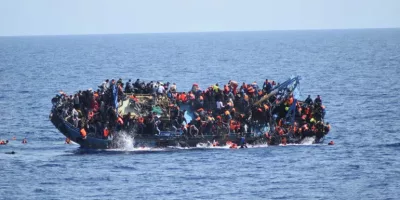The Committee for Justice (CFJ) stated that enforced disappearance constitutes a violation of human rights that extends beyond the disappeared individual to impact their family and society at large. The consequences of enforced disappearance are profound, causing prolonged psychological distress for the families of the forcibly disappeared, who grapple with uncertainty about the fate of their missing loved ones. The search process itself places families at considerable risk.
Recognizing the far-reaching impacts of enforced disappearance, international conventions and agreements have endeavored to criminalize this act and ensure accountability for its perpetrators. Every year on August 30th, the global community marks the International Day of the Victims of Enforced Disappearances to raise awareness about this grave violation of fundamental human rights and to highlight its devastating effects on individuals and society.
Just as enforced disappearance has an impact on the individual and their family, communities also suffer from its effects. The disappearance of the sole breadwinner, the financial decline of families, and their social marginalization all put pressure on the social fabric. Enforced disappearance is also often used as a strategy to instill fear within communities.
Additionally, enforced disappearance violates a range of human rights, including; the right to personal security and dignity, the right not to be subjected to torture or other forms of cruel, inhumane, or degrading treatment or punishment, the right to humane conditions of detention, the right to a legal personality, the right to a fair trial, the right to form a family life, and the right to life (in case the victim of enforced disappearance is killed).
According to the International Convention for the Protection of All Persons from Enforced Disappearance, which came into force in 2010, “enforced disappearance is considered to be the arrest, detention, abduction or any other form of deprivation of liberty by agents of the State or by persons or groups of persons acting with the authorization, support or acquiescence of the State, followed by a refusal to acknowledge the deprivation of liberty or by concealment of the fate or whereabouts of the disappeared person, which place such a person outside the protection of the law.”
The convention also prohibits subjecting any person to enforced disappearance under any exceptional circumstances, including situations of war, threat of war, internal political instability, or any other exceptional situation, to justify enforced disappearance.
In today’s world, the prevalence of enforced disappearance has risen to the extent that it has become a global problem that requires urgent intervention to address its causes and effects. The UN’s official website states that while enforced disappearance used to be primarily associated with
military dictatorships, it now occurs in complex conditions of internal conflict or is used specifically as a means of political pressure against opponents.
In Egypt, since July 2013, the rate of enforced disappearance has escalated in parallel with the political events the country has witnessed after the ousting of the first democratically elected president, Mohamed Morsi, through a military coup led by the current president, Abdel Fattah al-Sisi.
During this dark period in Egypt’s recent history, CFJ managed to document 482 cases of enforced disappearance. CFJ’s most recent quarterly report covering the period from July to September 2022 documented 48 cases of enforced disappearance. The official silence and disregard for these cases have facilitated the escape of their perpetrators from accountability.
Given the gravity of these devastating consequences, CFJ urges Egyptian authorities to desist from employing enforced disappearance as a systematic practice in dealing with dissidents and human rights advocates. CFJ also implores Egypt to become a signatory and adherent to the International Convention for the Protection of All Persons from Enforced Disappearance.
Furthermore, CFJ requests the authorities in Egypt to clarify the fate of all those who have been forcibly disappeared and to immediately release them. It also insists that the Public Prosecution must undertake serious and impartial investigations into the complaints and reports submitted to it. CFJ emphasizes the necessity for the Public Prosecution to fulfill its primary role in overseeing various detention facilities, determining their true conditions, and verifying whether some of the disappeared individuals are being held in them






